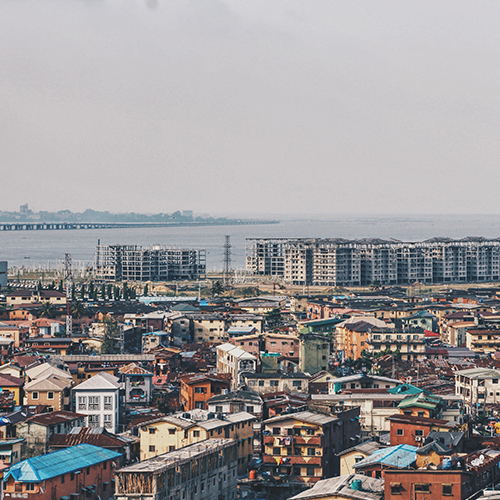
 12 Oct 2020
12 Oct 2020
OHADA (short for “Organisation pour Harmonisation en Afrique du Droit des Affaires“), being the international organisation responsible for harmonising business law in Africa, was set up by international treaty in 1993, comprising 17 African States. Whilst any African country can accede to the treaty, as the laws are modelled on civil law concepts OHADA has in practice been of interest to civil law jurisdictions, the vast majority of which are francophone.
OHADA laws (set out in a series of codes) bear remarkable similarities in legal terms to EU Regulations in that they are both supranational (i.e. are not promulgated at national level) and are directly applicable in each of the OHADA member states (i.e. they apply directly as a matter of domestic law without any national implementing legislation). In other words,exactly the same set of laws (Codes)apply in identical terms across each of the members states.
In a European Union context much ink has been spilt on describing the unifying role of the European Court of Justice in creating common standards and promoting the four fundamental freedoms in the EU (being freedom of movement of goods, persons, services and capital). OHADA has instituted a similar regime with the Common Court of Justice and Arbitration (“CCJA”) which sits in Abidjan in the Ivory Coast. As with the ECJ with regard to EU law, the CCJA across the OHADA is the highest court as to matters of OHADA law. This is provided for in a number of ways:
OHADA has been successful in introducing an ever increasing array of Codes covering most aspects of business law. Specifically OHADA has introduced the following Codes (called “Uniform Acts”(Actes Uniformes)):
In a commercial context the Uniform Company Code, Code on taking security and Insolvency Code are of greatest significance. This means for instance that the forms of company, articles of association and registration of charges are identical across the whole of the OHADA region. A corollary of this is that investors may use the same lawyer to advise them on these matters for transactions across the OHADA region. The CCJA is also gaining traction as an arbitral forum with the Arbitration Law being recognisedby international practitioners as well-constructed set of rules by reference to international arbitration rules such as the ICC Rules. Whilst London and Paris are likely to remain popular seats of arbitration due to the excellent reputation of their national courts, there is no doubt that CCJA will become increasingly popular, particularly amongst African sovereign states and corporations as investors gain confidence in the reliability and professionalism of the CCJA.
Africa is fast becoming a huge investment target as international investors look for markets with high growth potential. One of the key purposes of OHADA and the CCJA is to provide a secure and reliable legal framework for foreign direct investment. The comfort provided to foreign investors of being able to appeal to an independent supranational court free from interference of the national jurisdictions is difficult to underestimate. Similarly, the predictability and standardisation of legal processes and documentation across OHADA countries brings significant benefits and cost-savings for companies operating across multiple OHADA jurisdiction.
For more details on OHADA please refer to www.ohada.com.
 12 Oct 2020
12 Oct 2020
For many lawyers due diligence means undertaking a desktop study of documents, often by junior lawyers, collated on the basis of responses to a due diligence questionnaire. The junior lawyers may be asked to fill in templates designed to get them to focus on typical legal issues such as change of control clauses. If the lawyers follow best practice, they will go further and tailor the questionnaire to focus on key areas of risk as well as value drivers.
However as with any process, the reliability ofresults will depend on the methodology used, and any robust due diligence process should not just be based on a desktop study focussing on documents. There is a danger of not seeing the wood for the trees, with lawyers frequently using up valuable billable hours focussing on relatively trivial matterswhilst not always spotting the proverbial elephant in the room.
In natural resources deals, the large investments involved as well as the long-term nature of the investments associated with host country risk make due diligence crucially importance. It is axiomatic that title issues are of paramount importance in natural resource deals; indeed, if an investor does not have good title to resource it has nothing. International lawyers are well used to working with counsel in the relevant jurisdiction to obtain a “title opinion” to give comfort to investors and their funders. Again lawyers following best practice will actively manage the process of obtaining the title opinion by ensuring that the relevant country counsel makes all relevant searches and enquiries. But is that enough? A recent high court decision in London involving a Nigerian oil concession would suggest otherwise.
The facts go back to January 2010 when the Republic of Nigeria entered into a gas supply and processing agreement (the “Agreement”) with Process & Industrial Developments Limited (“P&ID”), a sole purpose BVI registered Shell Company that had no track record in the oil and gas sector. Under the Agreement, Nigeria was to supply P&ID with natural gas for 20 years at a facility to be built by P&ID.The Agreement was not implemented and an arbitral tribunal found in favour of P&ID by final award of $10 billion in 2017 which P&ID successfully applied to enforce in August 2019. This was one of the largest ever awards against a sovereign entityamounting to a quarter of the country’s foreign reserves or a fifth of its annual exports which was based on the loss of two decades of presumed profits and interest.
Earlier this month, the High Court granted Nigeria a time extension to challenge a US$10 billion arbitral award issued against it in January 2017 one of the largest awards granted against a sovereign state, notwithstanding that the time limit of 28 days for extensions under the Arbitration had passed. The extension was admittedon the basis that the Agreement and the award were tainted by fraud and after Nigeria admitted that due diligence relating to P&ID had not been adequately undertaken and that the official involved lacked authority to approve the deal and did no due diligence on the company which it claims was unqualified and lacked petroleum industry experience
Whilst many legal commentators focus on the high court’s approach in considering issues of fairness as well as other factors, it remains an extraordinary decision which shows that where there is strong prima facie evidence of fraud, the courts, or English courts at least, will bend over backwards to be seen to upholding justice.It also demonstrates the legal threat that arbitration can pose in major investment disputes.
In a due diligence context, particularly when investigating title issues, it shows the importance of lifting the bonnet and looking behind the documents. We do not know if P&ID obtained a formal title opinion before making its investment but it is likely that it did. As the maxim goes “Fraus Omnia Corrumpit”.